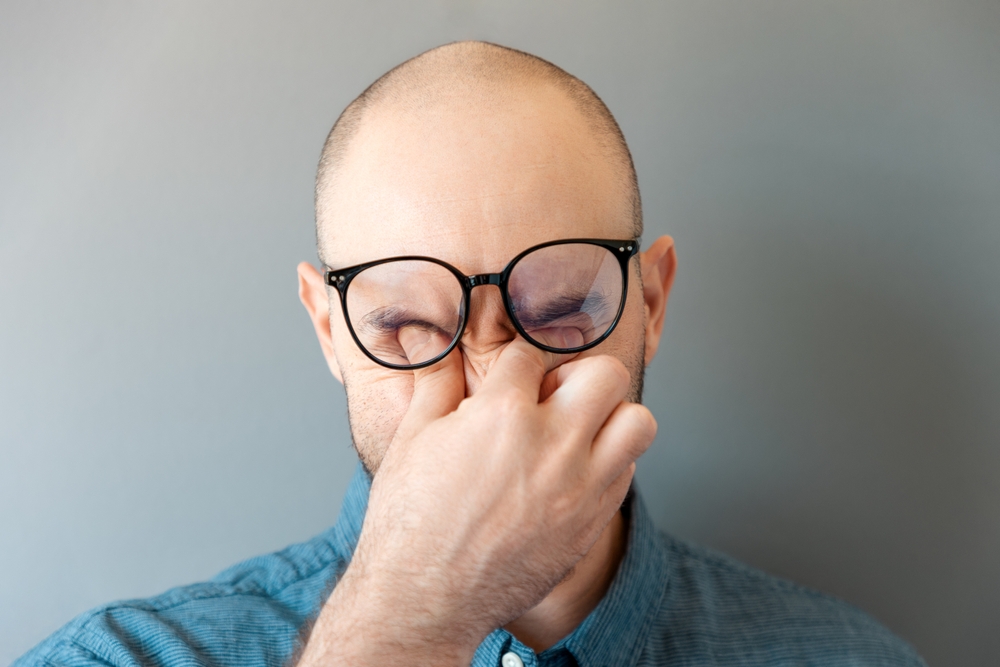
Dry, irritated eyes can be more than just an occasional nuisance—they can affect your daily comfort and even your vision. If you’ve ever experienced burning, redness, or that persistent gritty feeling in your eyes, you’re not alone. Dry eye syndrome is a common issue, but thankfully, it's manageable with the right treatment. At Dr. Stephen Nevett and Associates, we help patients in the Pacific Northwest find lasting relief by addressing the root causes of dry eye rather than just masking the symptoms. Here are five of the most common causes of dry eye and what you can do about them.
1. Meibomian Gland Dysfunction (MGD)
Your eyelids contain tiny glands (meibomian glands) responsible for producing the oil layer of your tears. When these glands become blocked or inflamed, they can’t release enough oil, leading to quicker tear evaporation and dry eye symptoms.
The iLux® MGD Thermal Pulsation System is a highly effective treatment that uses gentle heat and compression to unblock these glands, restoring your tear film’s natural balance. This in-office treatment is quick, comfortable, and delivers lasting results by targeting the root cause of evaporative dry eye.
2. Screen Time and Digital Eye Strain
Spending hours staring at a screen reduces your blink rate, which is essential for spreading tears evenly across your eyes. Less blinking means your eyes dry out faster, leading to discomfort, redness, and fatigue.
The 20-20-20 rule is a great habit—every 20 minutes, look at something 20 feet away for at least 20 seconds. Using lubricating eye drops can also help, but if symptoms persist, a professional dry eye evaluation may be needed to determine if additional treatment is necessary.
3. Environmental Factors
Living in a dry, windy, or air-conditioned environment can accelerate tear evaporation. Even indoor heating in the winter can dry out the air, leaving your eyes feeling irritated.
Using a humidifier at home or work can help maintain moisture in the air. Sunglasses with wraparound frames can also shield your eyes from wind exposure when outdoors. If your environment continues to contribute to your symptoms, additional treatments such as punctal plugs may be recommended.
4. Aging and Hormonal Changes
As we age, tear production naturally declines, and hormonal changes—especially in women during pregnancy, menopause, or while taking birth control—can lead to increased dryness.
While aging is inevitable, dry eye doesn’t have to be. Prescription eye drops, omega-3 supplements, and professional treatments like punctal plugs can help. Punctal plugs are tiny inserts placed in the tear ducts to slow tear drainage, keeping your eyes naturally hydrated for longer periods.
5. Contact Lenses and Certain Medications
Long-term contact lens wear can contribute to dry eye by reducing oxygen flow to the cornea. Additionally, medications such as antihistamines, antidepressants, and blood pressure medications can decrease tear production.
Switching to daily disposable lenses or specialty contacts designed for dry eye sufferers can make a big difference. If medications are a contributing factor, talk to your doctor about possible alternatives or strategies to manage your symptoms more effectively.
Finding the Right Dry Eye Solution for You
Dry eye isn’t a one-size-fits-all condition, and neither is treatment. At Dr. Stephen Nevett and Associates, we take a personalized approach to dry eye care, using advanced diagnostics and treatments like the iLux® MGD Thermal Pulsation System and punctal plugs to provide lasting relief.
If you’re tired of dealing with dry, irritated eyes, schedule a consultation with Dr. Stephen Nevett and Associates to get to the root of your dry eye and start feeling comfortable again. Visit our office in Lynnwood, Washington, or call (425) 712-8443 to book an appointment today.







